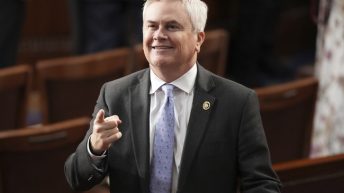Qatar has positioned itself as a go-between in Middle East talks, but deeper ties to Hamas, the Taliban, and other extremist groups raise hard questions about whether it is a neutral mediator or a financier of violence, and why the United States treats it as an ally despite that history.
Qatar helped broker recent negotiations aimed at ending the Israel–Hamas fighting, presenting itself as a capable convener. That posture requires trust, but trust should be earned, and Doha’s long record of engaging with violent actors makes that trust fragile. The country’s diplomatic usefulness rests on contacts and channels that, to many critics, cross from communication into complicity. If you’re counting allies and enemies, Qatar sits in a gray area that demands scrutiny.
Historically, Doha has offered safe haven and support to Islamist movements across the region, relationships that predate its recent mediation role. That ties Qatar to a web of actors that Washington and its partners view with alarm, especially when money flows along the same routes used for talks. The risk is clear: financial support and political shelter can strengthen groups that perpetrate attacks and destabilize the region. A government that hosts diplomats and donors for extremist causes cannot claim pure neutrality.
In recent comments to CNN, Qatar’s prime minister reflected on his country’s unique ability to “convene between conflicted parties and understand the grievances.”
Of course, Qatar’s ability to perform that job rests on a hefty rolodex of international contacts, including some of the world’s most notorious terrorist groups. At first glance, this wouldn’t strike the average reader as much of a problem. The United States doesn’t negotiate with terrorist groups, which means it must employ someone else to mediate. Why shouldn’t that someone be Qatar, a Major Non-NATO Ally in good standing with Washington?
That logic gets strained when evidence suggests Doha isn’t merely talking to extremists but financing them. Reports and intelligence assessments show transfers of money and other support that align with Doha’s stated policy of helping Gaza’s civilians but blur into payments that benefit Hamas leadership. Donations and state pledges have real consequences on the ground, turning humanitarian claims into leverage for armed groups. Whether intentional or negligent, these funding flows have helped sustain networks hostile to American and allied interests.
The only problem is that Qatar has spent decades harboring, financing, or promoting many of the terrorist groups it engages. At best, the Qataris come to the negotiating table with biases. At worst, they’re doing the terrorists’ bidding.
One milestone in that history was Doha’s enduring relationship with Hamas, including the 2012 opening of a political office in the Qatari capital. That year also saw a major pledge to Gaza, followed over time by additional transfers tied to reconstruction and governance. Numbers cited in public reporting include hundreds of millions and then upward into the billions, sums that critics say became intertwined with political influence. If money and diplomacy flow together, it’s hard to maintain the fiction that Doha’s role is purely humanitarian.
Intelligence officials in the United States and Israel have linked Qatari money to outcomes that shaped violent events, including the brutal October 7, 2023 attack in Israel. Those assessments argue that financial channels helped equip and incentivize militant actions. For many in conservative circles, this is not an academic distinction; it is a security problem that demands a realistic response. The U.S. must weigh its strategic cooperation against the real costs of Doha’s actions.
Much ink has been spilled since October 7, 2023, about Qatar’s longstanding relationship with Hamas. The story, in a nutshell, begins in 1999 when Hamas was shopping for new headquarters after Jordan expelled the group from its territory. Qatar offered Hamas leaders sanctuary, but Hamas picked Syria instead. Still, Hamas maintained contact with Qatar throughout the first decade of the 21st century before eventually opening a political office in Doha in 2012.
The same year, Qatar solidified its financial relationship with Hamas when the former emir — the first foreign head of state to visit Gaza under Hamas rule — pledged $400 million to the impoverished enclave. By October 2023, that sum had soared to approximately $1.8 billion, plus millions more that Qatari leaders allegedly sent to Hamas via a “discreet” funding channel. American and Israeli intelligence officials, past and present agree that Qatari cash enabled Hamas’s October 7, 2023, massacre of 1,200 people in Israel.
It is politically awkward for the United States to rely on a partner whose behaviors sometimes undermine core U.S. goals. Doha is a strategic partner in energy markets and regional diplomacy, and it hosts key U.S. military assets. But strategic utility does not erase moral and security risks. Washington’s policymakers should make a sober calculation: cooperation must be conditional and leverageable when state behavior crosses into support for terrorism.
Public rhetoric from American leaders sometimes praises engagement with Qatar, yet praise must not become blindness. There is room for tough, transactional diplomacy that keeps lines open while demanding accountability and transparency. A responsible approach would press Qatar to sever funding lines that sustain violence while preserving channels that genuinely reduce human suffering. That distinction between useful mediation and enabling terror is the dividing line for U.S. policy.
Qatar’s behavior forces a hard choice for those who value American strength and stability abroad: keep partnering with a useful but compromised ally, or apply pressure to change destructive policies. The answer lies in using American influence selectively and firmly, ensuring that any engagement rewards restraint and punishes support for violence. The stakes are the safety of civilians, the credibility of U.S. power, and the integrity of diplomacy itself.





Add comment